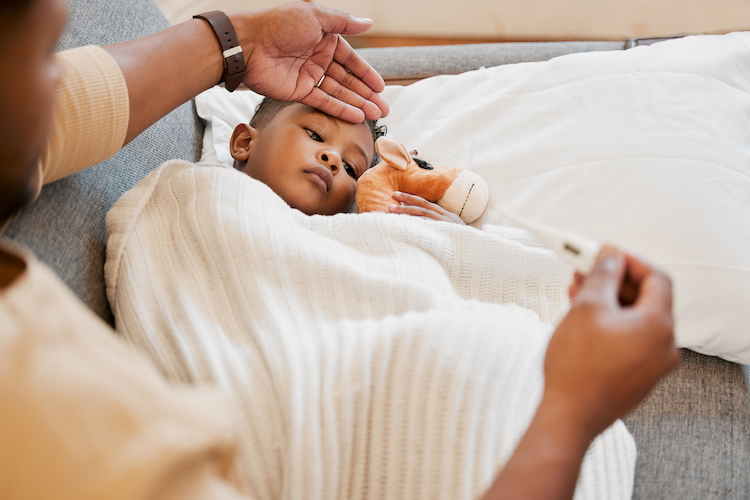- Home
- The Parenting
- Banner Health Pediatrician Offers Advice For Parents During Respiratory Virus Season

Banner Health Pediatrician Offers Advice For Parents During Respiratory Virus Season
The cold and flu season is here, and it is important for parents and caregivers to be vigilant in identifying respiratory illnesses that could affect children. These include Respiratory Syncytial Virus (RSV), COVID, and Influenza (Flu). To ensure the health and well-being of our youngest population, here is important information on recognizing these illnesses and adopting preventive measures to prevent the spread of these viruses.
“We often see a surge in respiratory illnesses among children during the holiday season”-said Dr. Espinoza, Pediatrician at Banner Medical Group. “This is primarily because they tend to come in close contact with a larger number of people during festive gatherings and family reunions. These increased interactions can facilitate the spread of respiratory viruses.”
Respiratory Syncytial Virus
RSV is a highly contagious virus that primarily affects young children and can lead to severe respiratory complications. Symptoms may include runny nose, cough, wheezing, difficulty breathing, and fever. In severe cases, RSV can result in bronchiolitis or pneumonia, leading to hospitalization.
COVID
Caused by the SARS-CoV-2 virus, COVID affects individuals of all ages, including children. Symptoms can vary but commonly include fever, cough, shortness of breath, fatigue, and loss of taste or smell. In severe cases, it can cause respiratory distress and organ failure.
Influenza
Influenza or the flu as it is more commonly known as, is a highly contagious viral infection affecting individuals of all ages. Symptoms include high fever, sore throat, muscle aches, cough, runny nose, and fatigue. Severe cases can lead to complications such as pneumonia.
Banner Health offers tips to minimize the transmission of RSV, COVID, and flu among children, the following practices are recommended:
- Frequent Handwashing: Encourage children to wash their hands with soap and water for at least 20 seconds or use hand sanitizer containing at least 60% alcohol.
- Sanitize Surfaces: Clean and disinfect frequently touched objects and surfaces, such as toys, doorknobs, and countertops.
- Social Distancing: Limit close contact with individuals showing symptoms or known to be infected. Maintain a safe distance and avoid kissing them if you are experiencing symptoms.
- Proper Respiratory Hygiene: Teach children to cover their mouth and nose with a tissue or their elbow when coughing or sneezing, followed by proper disposal or sanitizing procedures.
- Stay Home: If you or your child are feeling unwell, experiencing respiratory symptoms, or have been diagnosed with RSV, stay home to prevent spreading the virus to others.
- Regular Vaccinations: Ensure children receive recommended vaccinations, including COVID, Flu and RSV vaccines to protect against specific respiratory illnesses. Consult healthcare providers for appropriate vaccination schedules and availability.
“The health and safety of our children should always be our top priority. To minimize the transmission of respiratory infections such as RSV, COVID, and Flu, it is crucial to adhere to simple yet effective preventive measures. Encourage frequent handwashing, promote the use of masks in appropriate settings, maintain physical distancing, and prioritize vaccinations. By consistently practicing these measures, we can significantly reduce the risk of respiratory illnesses among our precious little ones.” -said Dr. Espinoza.
